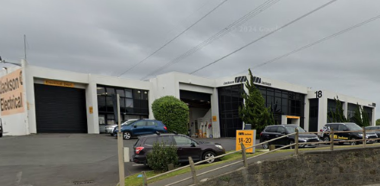Commercial Lease – What Every Landlord Needs to Know
Taking on a new tenant in your valuable commercial or industrial property is a major step. Whether you're negotiating a new lease or renewing an existing one, it’s essential to understand the key terms before committing. This guide breaks down the critical factors every landlord should consider—so you can secure a long-term tenant for your property.

How to Choose a Commercial Tenant
If a prospective tenant has been in operation for a few years, then you can check how they behave in their current tenancy. Do they take care of the premises? Do they pay rent on time? Find out their reasons for shifting. For first time businesses, ask to see their cashflow forecasts, and what business experience they have.
For all prospective tenants, obtain a business credit report to find out the business’s credit history, who the key players are in the business, and whether they have been involved in failed businesses or had judgements rule against them. Do an internet search on the key players.
Securing Your Interests as a Landlord
You can register your interest on the PPSR website if the business lease is for at least one year. This can help you recover unpaid rent if the company can’t pay its bills.[i]
If this is the first time that a business has entered into a tenancy, then you may need to obtain additional security, such as a monetary bond which is refunded at the end of the tenancy. Or a personal guarantee from shareholders, directors or associated parties.
Presenting Your Commercial Property for Prospective Tenants
Finding a decent tenant is a bit like dating. Not only does your tenant need to be attractive but you need to present your property in its best light too. How can you make your property more appealing for prospective tenants?
First Impressions – Is the entryway clean, well lit and accessible? Do you have clean windows, have you cleared the space of rubbish? Is the paintwork and carpet in good condition?
Structural integrity – Have a seismic engineering assessment available to show that you do not have an earthquake-prone building, or that you have completed seismic work on the earthquake prone building.[ii]
Use of Space – Is there flexibility in the site’s use? Are there partitions marking out usable spaces? Do the kitchen and washroom facilities work? Are there onsite carparks, loading docks?
Subletting or Assignment
Subletting - If the tenant wants to bring in another business to help pay the rent, you need to give consent first.
Assignment – assigning the lease to a new tenant also needs your consent, even if the tenant is selling your business to the new tenant.
You need to do the same due diligence on subtenants and assignments as for your original tenants.
Permitted Use
The lease will define the business activities that are permitted on the premises and what limitations or restrictions. Sometimes the limitations are to support neighbouring tenancies. For instance, preventing two hamburger outlets next to each other. Or allowing office parking to be used for restaurant patrons after 5:30pm and weekends.
Your tenant should also check your local Council regulations around signage, business licences for their industry, waste management, opening hours, use of outdoor spaces in front of your premises and noise. As a landlord you need to be aware of the regulations, in case of complaints. This is particularly important for hospitality businesses, but also health and beauty and industrial production.
Insurance
You will need to ensure that you have adequate building insurance, public liability insurance and loss of rents insurance. Make sure that your insurance excess aligns with what you can recover from the tenants. You should also ensure that your tenant insures its fixed assets, stock, and has public liability and business interruption cover.
Is Leasing and Renting Commercial Property the same?
When we are talking about the formal contractual document, we usually talk about a commercial property lease for longer term arrangements and renting for short-term arrangements such as pop-up shops or co-working spaces. But in everyday business language we often use “rent” informally when talking about the expense and use rent and lease interchangeably in conversation.
Lease Period and Rights of Renewal
A lease period is the number of years and months that your tenant will be obliged to pay rent for the use of your premises. If the period is too long, they may have to continue to pay rent long after the business has ceased operating or moved to a larger premises. If the period is too short, then you will be looking for a new tenant and have longer periods of vacancy.
Rent reviews allow for changes to the rental charge. Decide how often reviews will be undertaken. Decide what method you will use, CPI indexing, flat rate, fixed percentage, independent assessment.
A right of renewal allows the tenant to extend the lease period under similar conditions but usually has a rent review built in to allow the landlord to adjust the amount for market conditions. A 3x3 lease is more flexible for the tenant than a 9-year lease, because at the end of each of the 3 years they can decide not to renew.
Rental Income and Outgoings
Commercial leases aren’t always the same rent each month. Some leases have a percentage rent calculation, which means that a percentage of sales is charged periodically on top of the base rent. This typically happens in malls. You may also have marketing levies and business association levies.
A commercial lease is different from residential, as the tenant is liable for costs in addition to rent. Operating expenses (Opex) often includes rates, building insurance, administrative costs, building management, repairs and maintenance. It’s worth getting an explanation of what’s included in opex upfront, to avoid surprises.
Financial Incentives and Key Money
Rent free period – A Landlord may offer a rent-free period to give a tenant access to the building to set up before they start trading.
Contribution to Fitout – This is where a landlord offers to reimburse the tenant all or some of the cost of fitting out the building. Alternatively you might offer a cash payment to induce a tenant to sign a lease with you. These are tax-deductible expenses.
Guarantees – You may ask the tenant to provide a personal guarantee as additional security for the landlord, as either a director or shareholder of the company. This means that if the business defaults on its rent or other obligations, the landlord can make a demand on the guarantor. You should get legal advice to understand the scope of the guarantee, what it means for you if a tenant defaults and when you can invoke the guarantee.
Key Money – This is a fee the tenant pays to the manager, landlord or current tenant to secure a lease, generally in a desirable area. It is not the same as a bond, as bonds are refundable at the end of the tenancy. Consider it as part of your rental income. Usually it is spread across the term of the lease.
Maintenance and Repairs
Commercial tenants are usually responsible for the maintenance and repairs of the building interior they occupy, and the landlord for the structural repairs. But check your contract, particularly if there are shared spaces with other tenants. Have regular inspections of the property, and periodic maintenance programs, so you aren’t reliant on the tenant to report faults. If your tenant advises you of a maintenance issue, get onto fixing it promptly.
When they exit their tenancy, tenants are usually responsible to “make good” the property, which involves returning the property to the state it was in when they first leased it. This may involve doing the actual work of removing fittings and painting, or it may involve a financial settlement with the landlord. If you decide to retain some or all of the fitout, negotiate a value for the fitout with your exiting tenant. The cost to you is considered depreciable property.
Consult with your Lawyer about Commercial Leases
You need excellent legal advice when you review your lease agreements before signing. They can explain terms that are in the agreement from your landlord that we haven’t touched on in this blog, such as access, demolition clauses. They can also advise you on what to add, remove or modify in the agreement to suit your business needs.
A well-negotiated commercial property lease can save you money, reduce risk and provide the flexibility your business needs to grow. Before you sign, take the time to seek professional advice, understand the terms and the financial commitment you are undertaking. Be prepared to negotiate either directly or through your lawyer, to prevent major headaches later. Whether you’re entering a new lease or renewing an existing lease, the lease terms need to work for the life of your business.
- Serena Irving
Serena Irving is a director in JDW Chartered Accountants Limited, Ellerslie, Auckland. JDW is a professional team of qualified accountants, business consultants, tax advisors, trust and business valuation specialists.
Download a PDF version here or contact the author by email. Like our Facebook page for regular tips.
An article like this, which is general in nature, is no substitute for specific accounting, legal and tax advice. If you want more information about the issues in this article, please contact your legal adviser or the author.
[i] https://ppsr.companiesoffice.govt.nz/help-centre/getting-started/why-you-might-use-the-ppsr
[ii] https://www.building.govt.nz/managing-buildings/managing-earthquake-prone-buildings/about-the-earthquake-prone-buildings-system

Contact Us
Office Location: 127 Main Highway, Ellerslie, Auckland 1051, New Zealand
Postal Address: PO Box 11053, Ellerslie, Auckland 1542
Phone: (09) 579 7096
Email: results@jdw.co.nz



